All Issue Areas
Courier Magazine’s Farewell Edition
After 31 years of continuous publication, Courier's farewell edition features stories and accounts from authors who have participated directly in Stanley Center programming.
The Stanley Center (then the Stanley Foundation) began publishing Courier magazine more than three decades ago to share with concerned global citizens around the world information and perspectives gained in the course of our work. Media-driven public outreach efforts now part of our legacy included the Common Ground radio program, syndicated radio specials, and World Press Review—a monthly magazine that brought articles and analyses on global issues published outside of the United States to a domestic audience.
Outside of these efforts, we have maintained a longstanding commitment to strengthening understanding of the three global challenges that are the current focus of our work through our journalism and media programming. We believe independent, accurate journalism and the role journalists and the media play build better-informed societies, more-accountable institutions, and contribute to effective global governance. Today, we live this core value through our partnerships within the journalism and media community and the opportunities we provide journalists to report effectively on critical issues of global peace and security.
It is with the strategies of today and tomorrow in mind and enthusiasm for our approach to this work that we are retiring Courier magazine, part of ongoing efforts to closely align our communications with our role in driving policy progress.
As our longtime chairman and president, the late Dick Stanley, wrote in the inaugural issue of Courier in 1989, “we want your focus to be on the many people who are acting on their desire to make the world a better place, not on us.” This farewell edition features stories and accounts from authors who have participated directly in center programming on topics at the heart of our effort to create a more safe and peaceful planet for all of humankind. “Perhaps these pages will serve to energize you a bit in the same way that we draw strength from our interactions with good people.” And spark new ideas for our greatest global challenges.
Thank you for your readership—and friendship—over the many years. We look forward to connecting more than ever in the days to come.
Note: A full archive of each edition of Courier will be published on this website in July 2020. We hope you will continue to explore the many publications related to our policy work and partnerships with the journalism community already available on our website.
Courier, Issue 96
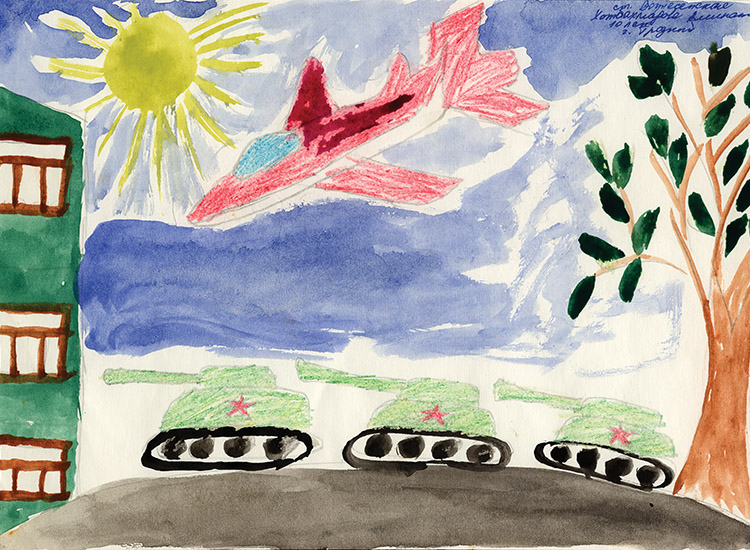
Drawing by a child displaced by war in Chechnya, shared as part of the Stanley Center’s March 2003 radio special, Children of War: Fighting, Dying, Surviving.
Coming Together: Mental Health and Psychosocial Support in Peacebuilding
Friederike Bubenzer
A key part of the Stanley Center’s strategy to prevent mass violence and atrocities is to channel evidence into policymaking to foster sources of resilience within communities. Within the fields of research and practice of peacebuilding and mass violence prevention, societal and individual mental health is often overlooked, yet remains a critical area for further partnership, analysis, and evidence-based policy integration.
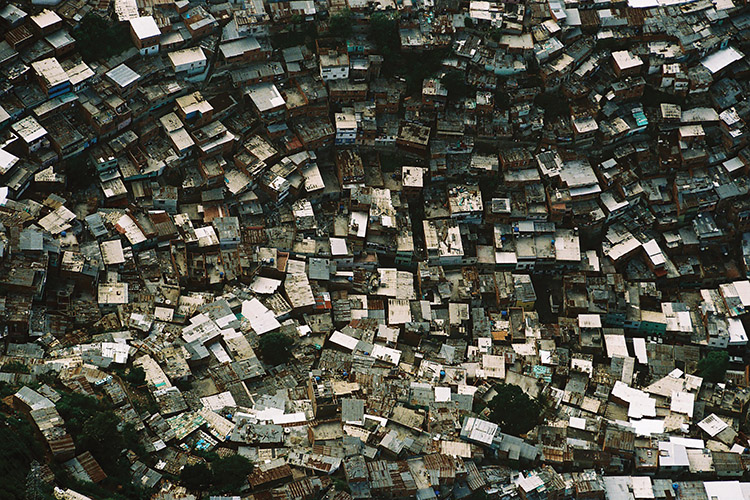
Housing in Caracas, Venezuela, as seen from above. (Photo by Venezuelan journalist and photographer Andreina Mujica, @andreinamujica)
A Venezuelan Life: The Evolution of Journalism Under Chavez
Milagros Socorro
As part of our commitment to fostering regional collaboration on critical issues, the Stanley Center helped convene the Latin American and Caribbean Civil Society Forum for the Prevention of Mass Violence. The author’s firsthand accounts of the challenges faced by Venezuelan journalists informed the forum’s April 2019 workshop in Cúcuta, Colombia—a border city with Venezuela and focal point for the migration crisis.

A ground-based interceptor missile lifts off from Vandenberg Air Force Base, California, as part of a test of the Ballistic Missile Defense System. (US Air Force/Joe Davila)
Ethics in the Age of OSINT Innocence
Melissa Hanham and Jaewoo Shin
Emerging technologies could pose opportunities or risks for avoiding the use of nuclear weapons. The Stanley Center partnered with Open Nuclear Network as a leader in the geospatial and open-source analysis communities to explore how ethics could help govern open-source intelligence and safely extend the critical contributions it makes to creating a safer world.
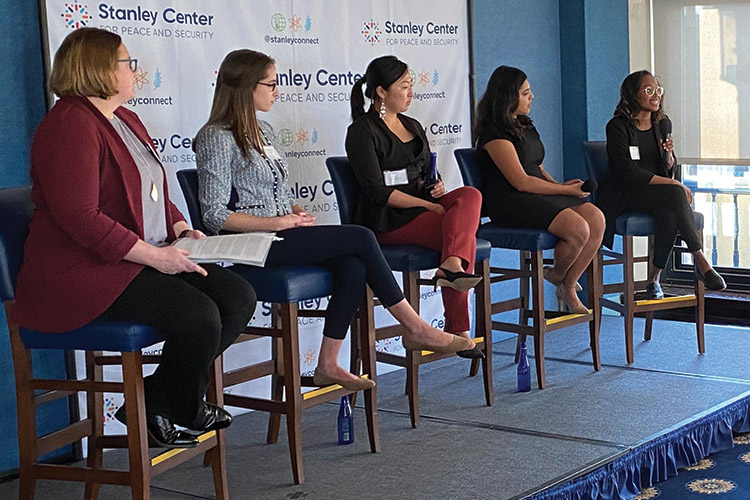
Left to Right: The Stanley Center’s 2019 Accelerator Initiative participants Jen Spindel, Kathryn Dura, Grace Liu, Sylvia Mishra, and Chantell Murphy share their work and take questions during a panel discussion in November 2019, in Washington, DC.
Next Gen on Nukes and Tech: A Conversation with Five Emerging Experts
Luisa Kenausis
The Stanley Center’s Accelerator Initiative offers a unique mentorship and career-development opportunity to a small cohort of early career women working in nuclear, international security, or technology policy. We interviewed the five women selected to participate in 2019 to find out their perspective on the initiative and to get an update on their careers more broadly.
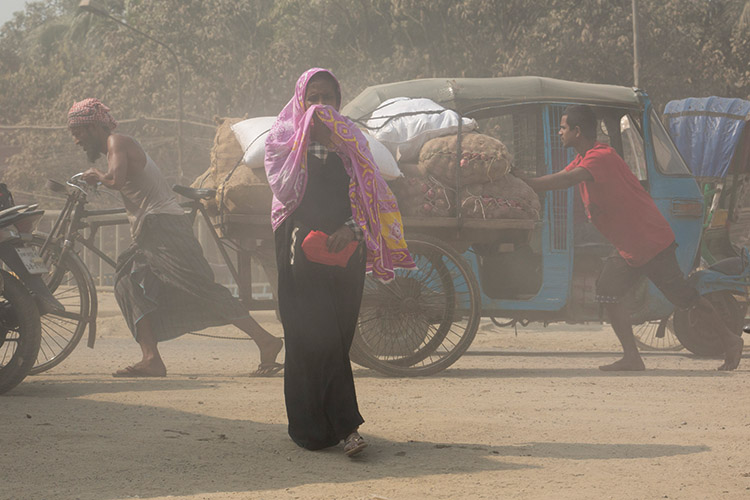
Air pollution visible in Dhaka, Bangladesh, where several million cases of illness occur every year because of poor air quality. (Barcroft Media via Getty Image/Zakir Hossain Chowdhury)
Double the Risk: The Exponential Rise of Threats to Human Rights by Climate Change and Infectious Diseases
Hiba Ghandour and Poorvaprabha Patil
The Stanley Center is currently exploring the crossroads of climate with areas such as migration, biodiversity, international security, and public health. The authors participated in a two-day workshop the center organized alongside the UN Development Programme, World Health Organization, and Wellcome Trust that sought to broaden the constituencies engaged in climate change discussions and advocacy.
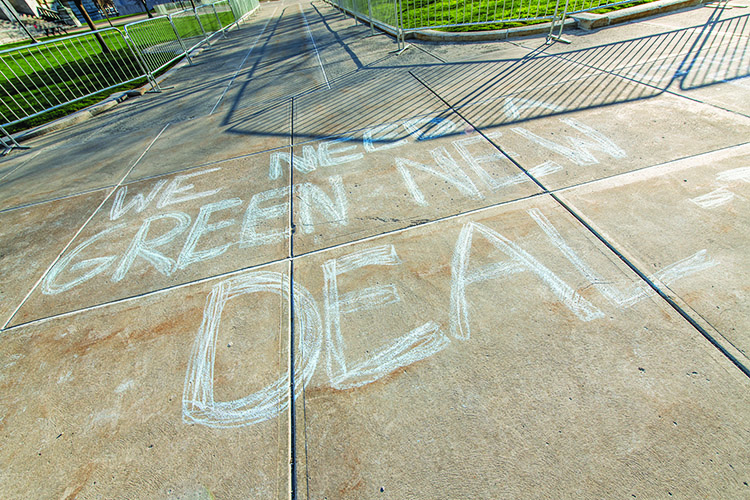
A view of a protest message, “We need a green new deal,” written in chalk in front of the New York State Capitol and office of Governor Andrew Cuomo. (Getty Images/Rochlin)
Waiting for the Green Stimulus
Julian Brave NoiseCat
In 2019, the Stanley Center, E3G, and experts from the climate and finance communities were considering the ways recovery efforts from a potential global financial crisis could incorporate systemic changes that would limit the increase in global temperature to 1.5°C above preindustrial levels. The author shared his expertise during a roundtable dialogue that led to a playbook for action in times of economic crisis, published by the center in March 2020.
To download the entire Issue 96 of Courier as a PDF, click below:
